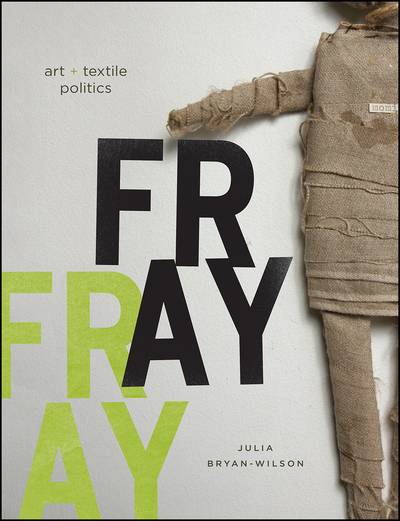
Doris and Clarence Malo Professor of Modern and Contemporary Art Julia Bryan-Wilson has been awarded the 2018 Book Prize from the Association for the Study of Arts of the Present (ASAP) for her book FRAY: Art and Textile Politics.
From the ASAP website:
“Congratulations to Professor Julia Bryan-Wilson for winning the prize for Fray: Art + Textile Politics. Amongst a very strong short list, the book prize committee recognized Fray for its inspiring mix of methodological innovation, sense of feminist and social engagement, and amazing re-articulation of contemporary art history around the material practices of textile art and craft in the United States and Chile from the 1970s to the present. Fray is a book that traces not only the emergence of an increasingly prominent artistic mode out of various craft and labor practices, but also shows how artists working with textiles–mainly women but also others operating on the margins of both the economy and the art-market–developed new material forms of expression and protest out of some of the most ancient technologies at our disposal as human beings–braiding, weaving, tying knots. Bryan-Wilson’s case studies explore the work of feminist knitting collectives, Chilean activists, emerging queer artists, and the vast numbers who contributed to the AIDS quilt. This is a book that provides a scrupulous examination of contemporary culture from the perspective of a medium whose materiality and immersion in bodily, physical labor challenge many of the stories we tell ourselves about art in an age of digital innovation and conceptual self-consciousness. At the same time, Fray assembles a picture of hemispheric contemporary art that offers scholars and critics in all the fields and area that ASAP embraces a chance to consider how female labor is valued, recognized, exploited, and made invisible. Bryan-Wilson’s work promises to change how scholars in various fields pay attention to craft-making practices and their representations in art, drama, literature, and everyday life.”